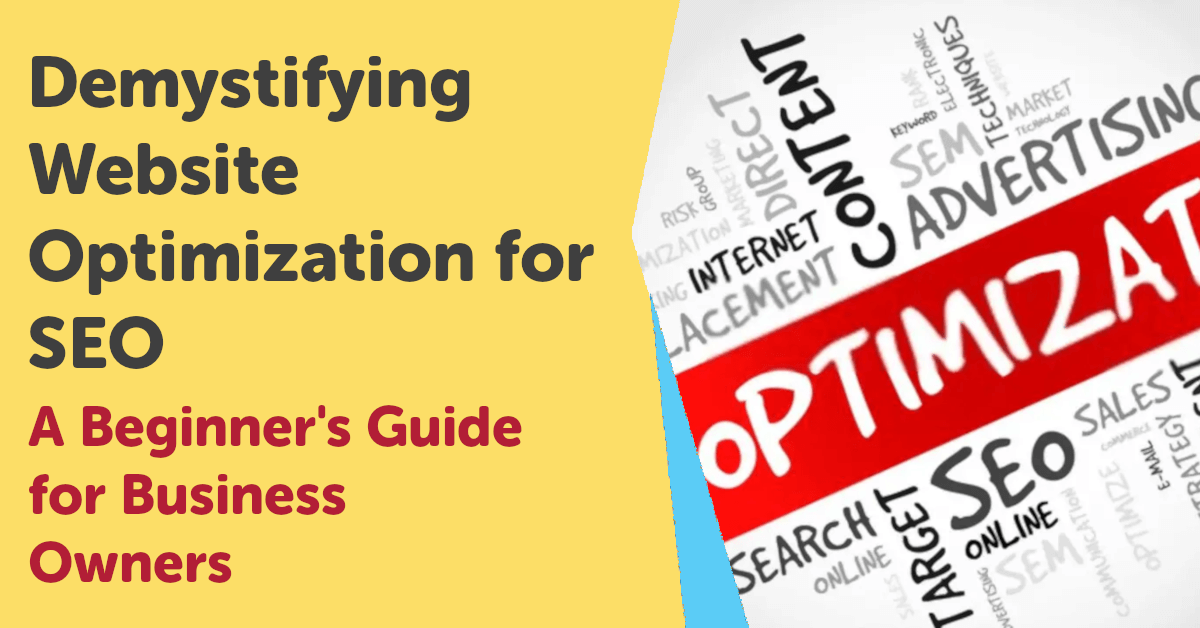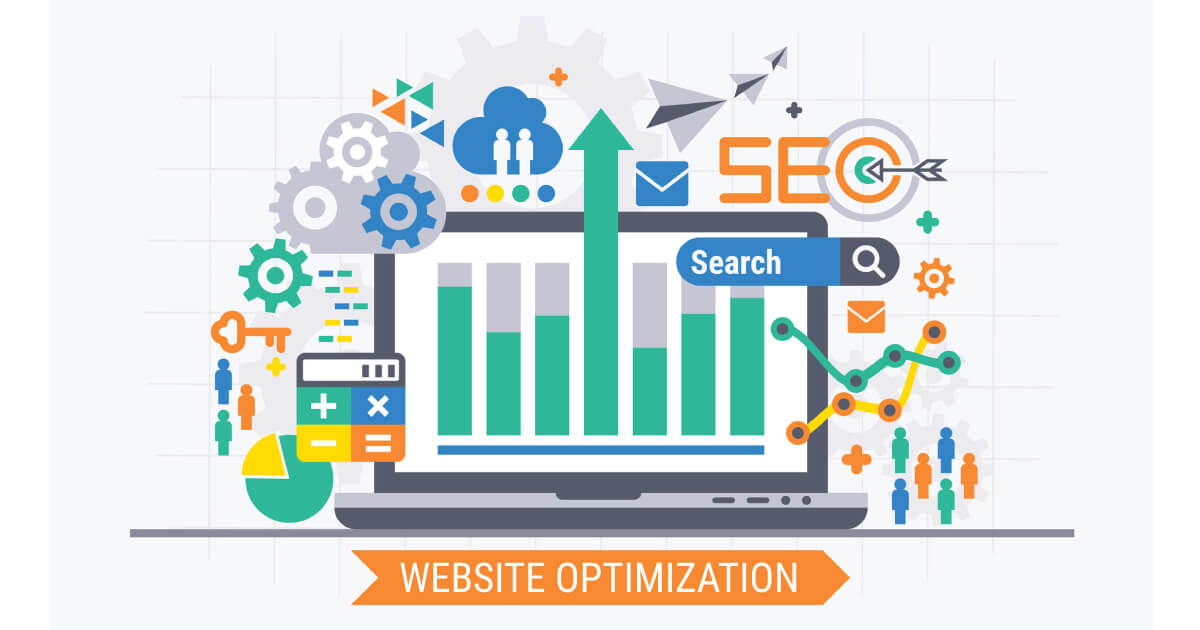
Demystifying Website Optimization for SEO: #1 Beginner’s Guide for Business Owners

As a digital marketer and developer, I’ve seen countless business owners struggle with website optimization for SEO. It’s a complex topic that can feel overwhelming, especially if you don’t have a technical background.
As a business owner who is looking to achieve digital growth, a particularly difficult task to face is keeping up with the ever-changing landscape of digital marketing. With new trends, updates, and algorithms constantly emerging, it can be challenging to stay ahead of the competition. However, website optimization for SEO is an essential component of any digital marketing strategy, and it’s essential to understand its importance.
But the truth is, that website optimization is crucial for improving your search engine rankings and driving traffic to your website. In this post, I will provide you with breakdown of website optimization for SEO in a way that’s easy for you as a business owner to understand.
What is website optimization for SEO?
First and foremost, it’s important for you to understand what website optimization for SEO actually means. The meaning of SEO really varies between people. In simple terms, SEO refers to the process we employ for making changes to our websites so that it can be easily discovered and understood by search engines like Google. When search engines are provided with a mechanism to easily understand what a website is all about, they can then show it to users who are searching for relevant information or services.

In a nutshell, website optimization for SEO is all about making your website more “search engine friendly”. So when you engineer a website so that it is search engine friendly, it will then rank higher in search engine results pages (SERPs), which in turn provides more organic traffic. There are many different aspects to website optimization, including technical SEO, on-page optimization, and off-page optimization.
Search Engine Land
Technical SEO
Technical SEO refers to the behind-the-scenes work that goes into making sure your website is structured in a way that search engines can easily crawl and index. This includes things like optimizing your site’s metadata, using a sitemap and ensuring that your site is mobile-friendly and loads quickly.
On-page optimization
On-page optimization refers to the changes you make directly to your website’s content in order to improve its relevance and authority to search engines. This includes optimizing your website’s headlines, using relevant keywords in your content, and ensuring that your website has high-quality, informative content that provides value to your audience.
Off-page optimization
Off-page optimization refers to the work you do outside of your website to improve your search engine rankings. Off-page optimization includes things like building high-quality backlinks to your website, engaging with your audience on social media, and leveraging other online channels to promote your website and build your online reputation.
Tools for website optimization for SEO
There are many different tools available to help you optimize your website for SEO, including keyword research tools, on-page optimization tools, and backlink analysis tools. Some of the more commonly used tools out there include SEMrush, Ahrefs, MOZ, SEO PowerSuite and Google Analytics.
Using the right tools can make website optimization for SEO much easier and more effective. There are a plethora of tools available that can help you with the different aspects of SEO, such as keyword research, on-page optimization, and backlink analysis.
One of the most popular SEO tools is SEMrush. This tool offers a wide range of features, including keyword research, site auditing, and backlink analysis. It also provides website owners with detailed reports on their website’s SEO performance and offers suggestions for improving it.
Ahrefs is another powerful SEO tool that offers comprehensive backlink analysis, keyword research, and content analysis features. Ahrefs also offers insights into competitors’ strategies, allowing you to identify the areas where you can gain an advantage.
MOZ is a popular SEO tool that offers a range of features for keyword research, site auditing, and rank tracking. It also provides a comprehensive backlink analysis tool that can help you identify high-quality links and potential link-building opportunities.
SEO PowerSuite is an all-in-one SEO software suite that includes tools for keyword research, on-page optimization, and link building. It also offers a rank-tracking feature that allows you to monitor your website’s search engine rankings over time.
Google Analytics is a free tool that provides detailed insights into your website’s performance, including traffic sources, user behaviour, and conversion rates. It also offers valuable insights into your website’s search engine performance, allowing you to identify opportunities for optimization.
Ultimately, the best SEO tools for your business will depend on your specific needs and budget. It’s important to do your research and test the different tools out there to find the ones that work best for you. By using the right tools, you can optimize your website for SEO more effectively and achieve better results in search engine rankings and traffic.
Final thoughts
Website optimization for SEO can seem daunting, but it’s an essential part of any digital marketing strategy. By taking time and effort into optimizing your website for search engines, you can improve your search engine rankings, which drives more organic traffic to your website, and ultimately scales your business. Not sure where to start? consider working with an expert who can help you create a comprehensive website optimization strategy that meets the unique needs of your business.
In conclusion, website optimization for SEO is a critical consideration for any business to succeed online. By following the tips and best practices that I have outlined in this post, you can optimize your website for search engines and start seeing real results in your search engine rankings and traffic. Remember, website optimization is an ongoing process, so be sure to regularly review and update your strategy to stay ahead of your competitors are doing.

